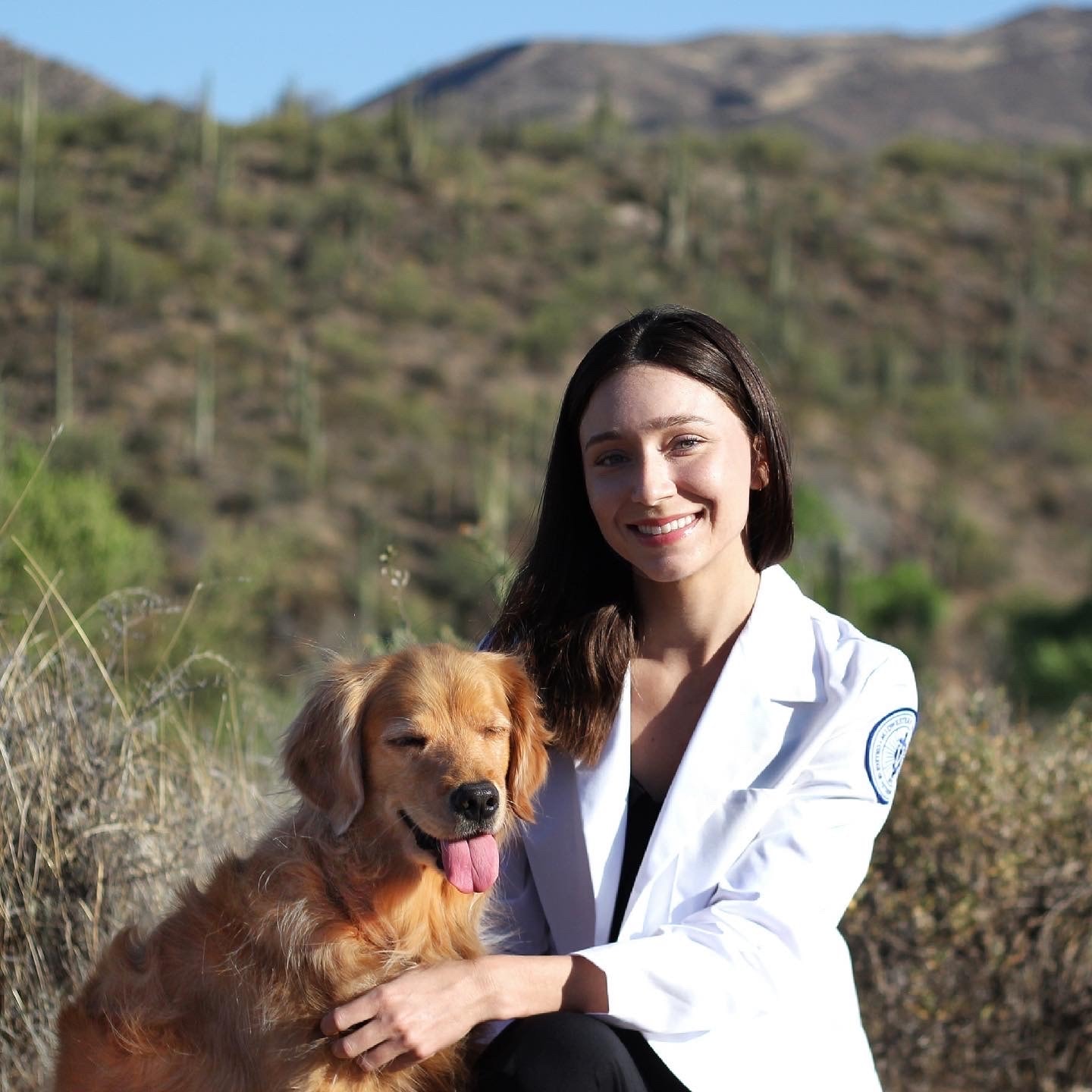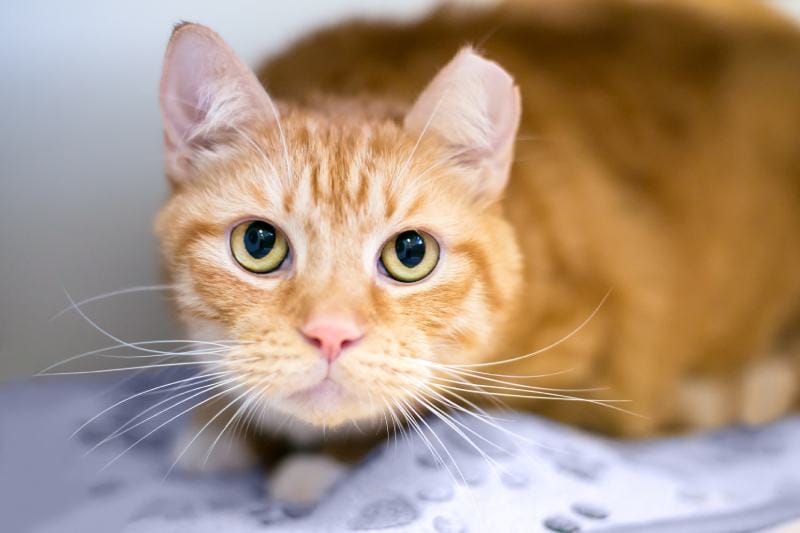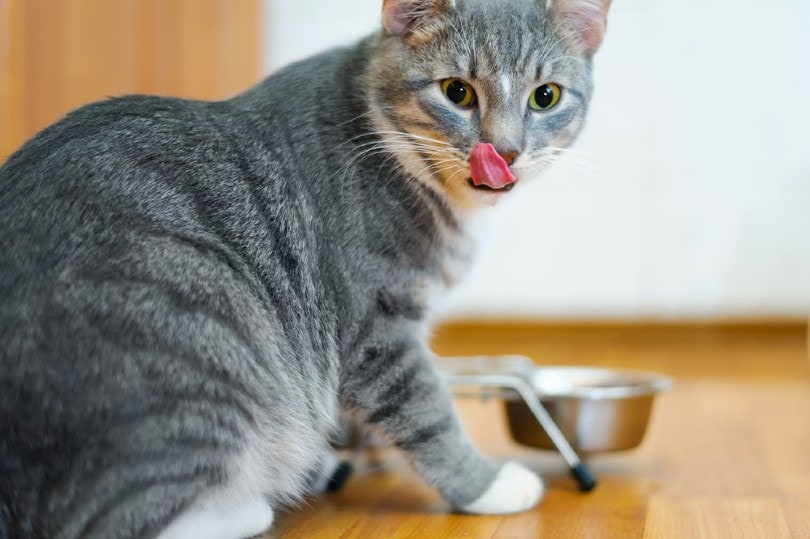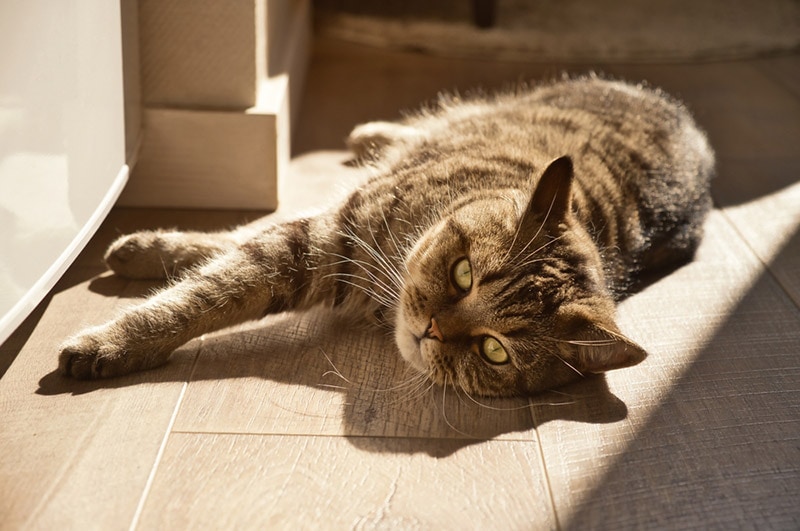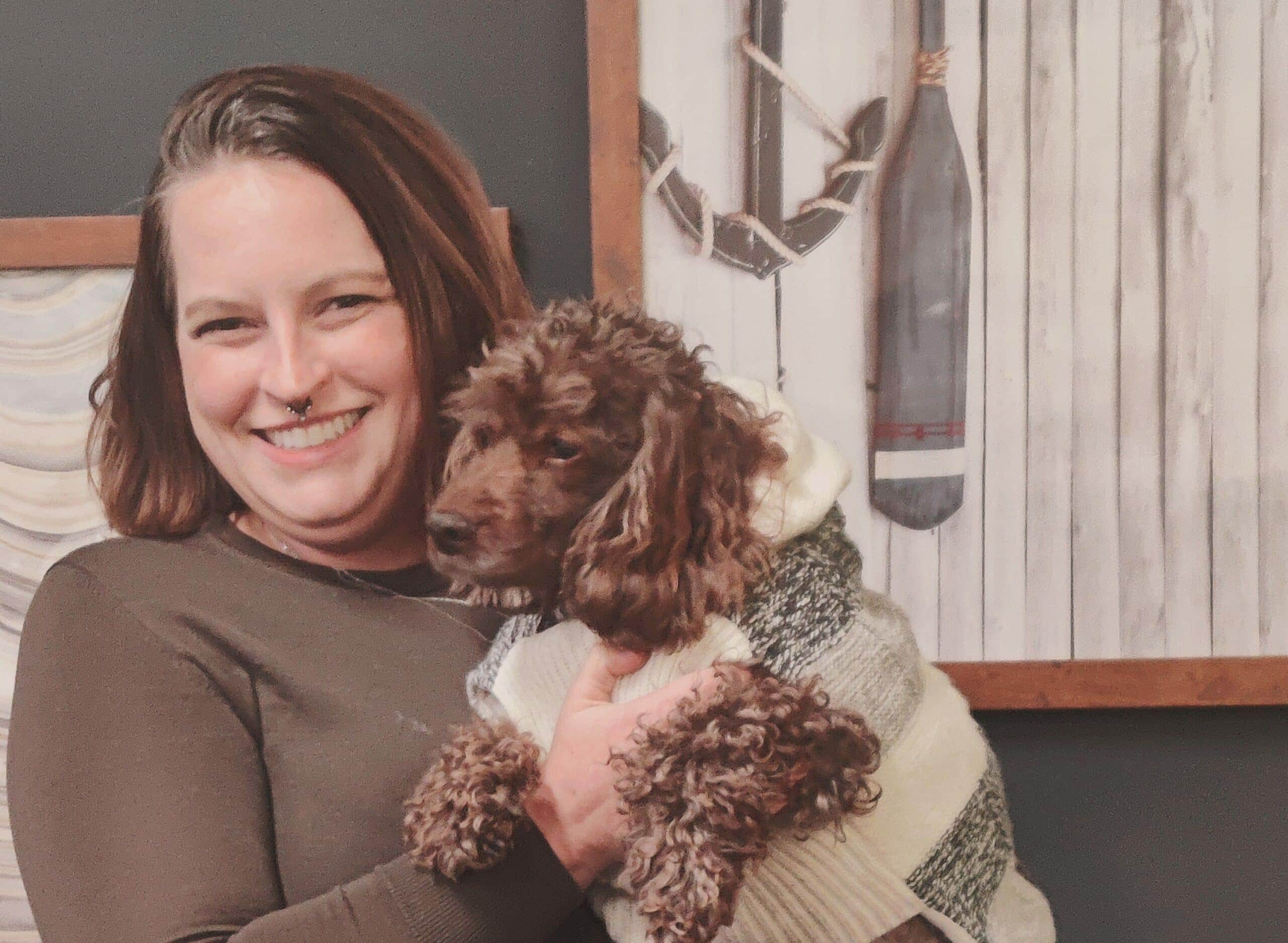Why Is My Cat Keeping One Eye Closed? 5 Vet-Reviewed Eye Problems
Updated on
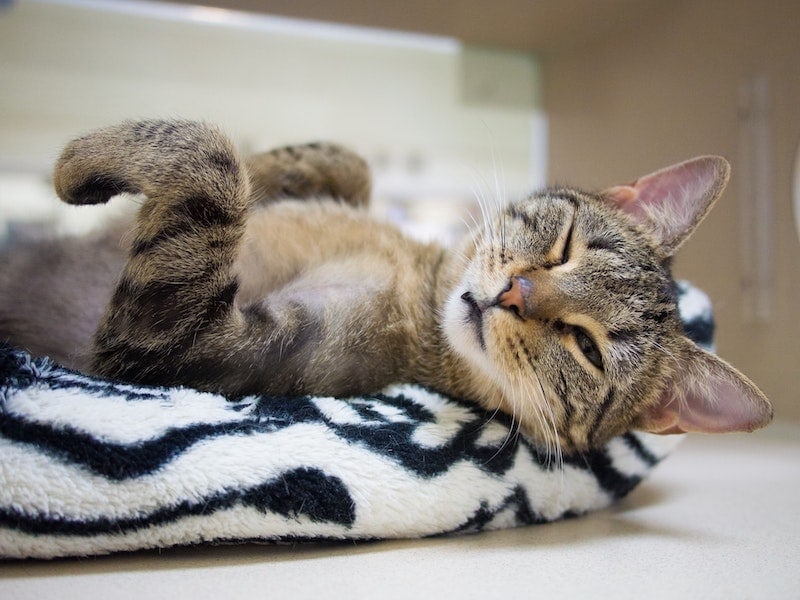
When people wink at each other, it’s generally a sign of affection or an attempt to flirt. However, if your cat appears to be “winking” because they’re holding one eye closed, their reasons for the behavior are much more concerning. If your cat is keeping one eye closed, it’s most likely because the eye is painful or irritated.
Several different medical conditions can cause your cat to hold their eye closed and we’ll take a look at those in this article. We’ll also give you some tips on keeping your cat’s eyes safe.
The 5 Conditions That May Cause Your Cat To Keep One Eye Closed
1. Eye Infections
Eye infections or conjunctivitis are one of the most common eye concerns for cats. In this condition, your cat’s eye may become red, irritated, and swollen, causing them to hold it closed due to pain or light sensitivity. Other symptoms you may notice include pawing or rubbing at the eye, excessive tearing, and yellow or green discharge from the eye.
Eye infections in cats can be either bacterial (caused by bacteria entering the eye) or viral, as a side effect of your cat being infected with a virus, such as feline herpes. Treatment of an eye infection varies depending on the cause.
If your cat has a viral eye infection, diagnosing and treating the underlying disease may be more complicated than just treating one eye itself.
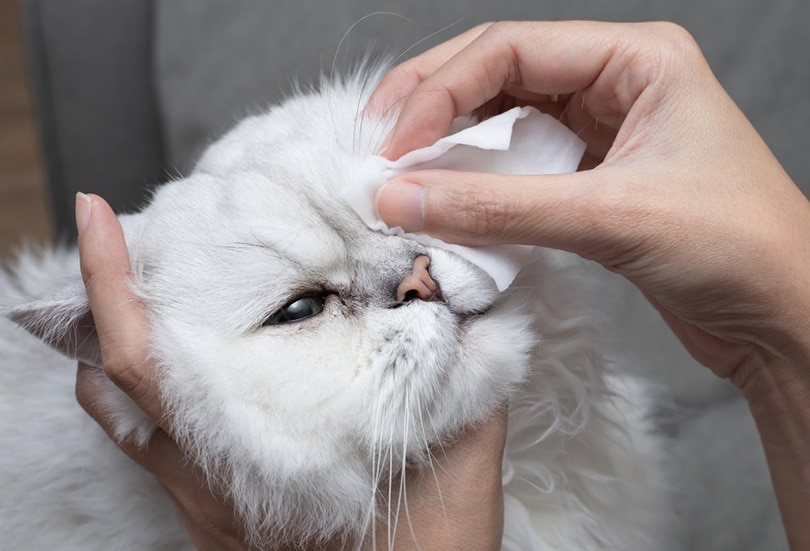
2. Eye Injury
Cats may also hold their eye shut if they’ve suffered a scratch or other injury to their eye. Corneal ulcers—the term for an injury that damages the surface of the eye—are very painful and holding the eye shut is one of the most common symptoms you’ll notice. Your cat’s eye may also be red and watery and they may rub or paw at it.
Treating a corneal ulcer usually involves medications, often including anti-inflammatory and pain meds. Many cats must also wear a “cone” or E-collar to keep them from pawing at the eye and making the condition worse.
3. Eyelid Issues
While more common in dogs, eyelid issues can also cause your cat to hold their eye closed. Your cat could have entropion, a condition where the eyelid rolls inward bringing the eyelashes in contact with the eye. Imagine constantly having an eyelash in your eye and you’ll understand why your cat might be holding it shut!
Cats can also develop growths on their eyelids that might get big enough to irritate the eye itself. Surgery is often needed to correct eyelid conditions.
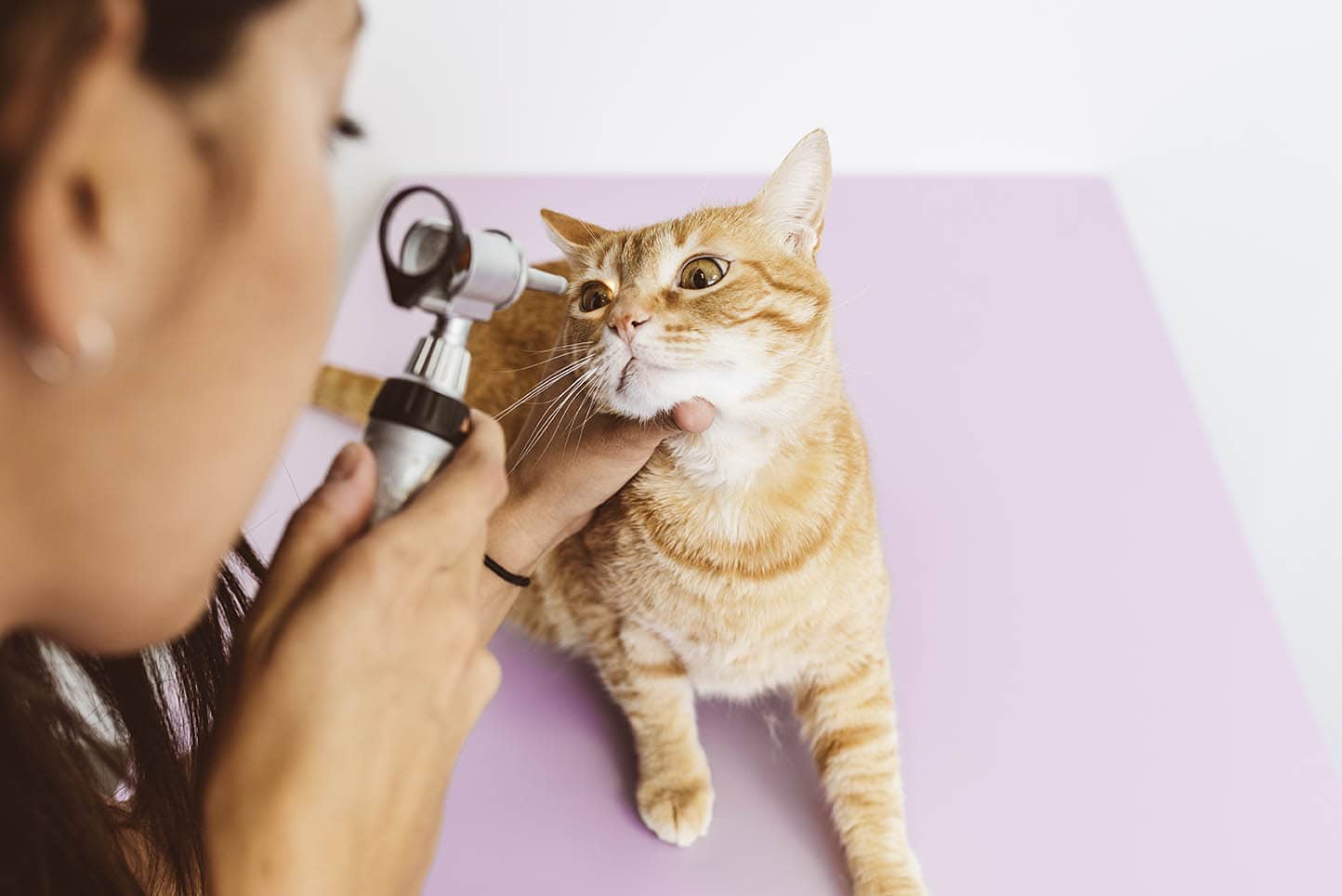
4. Glaucoma
Glaucoma is another painful eye condition that could lead your cat to hold their eye shut. This condition is also less common in cats than dogs.
Glaucoma occurs when the fluid in your cat’s eye can’t drain normally to maintain the correct amount of liquid. As a result, pressure increases in your cat’s eye, causing pain and impacting vision. If not treated, glaucoma can lead to blindness.
Besides holding the eye closed, your cat may display other symptoms such as cloudy eyes, signs of vision loss, bulging eyes, or abnormally large pupils. Glaucoma can have many causes, and treatment will depend on the ultimate diagnosis.
5. Dry Eye
Dry eye, officially known as keratoconjunctivitis sicca (KCS) is a condition where your cat’s eyes don’t produce enough tears to keep them properly lubricated. This dryness can lead to your cat’s eyes becoming irritated and painful, causing them to hold one shut.
Other signs you may notice if your cat has KCS are excessive blinking, yellowish discharge, or eyes that appear dull. This condition can be a side effect of other diseases, including viral herpes. Your vet can perform a simple test to diagnose this condition and prescribe medications as needed.
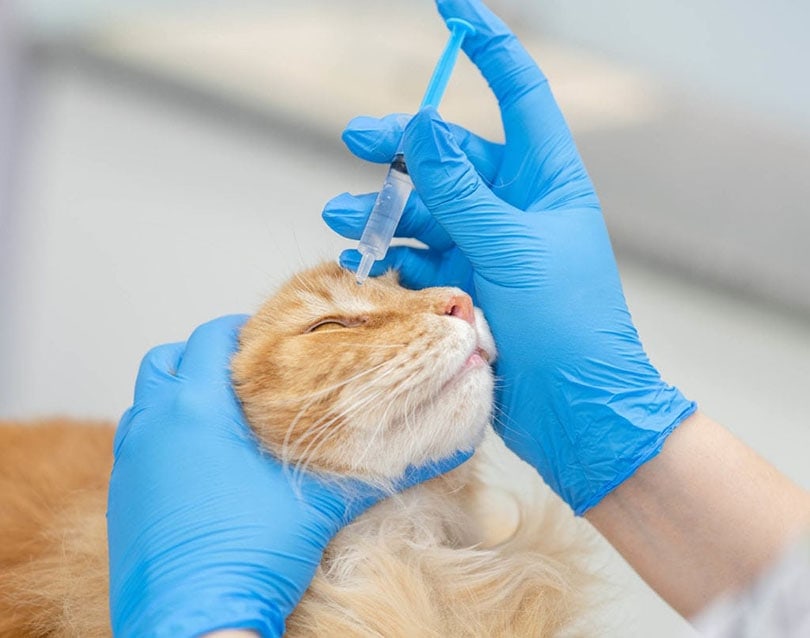
How To Prevent Eye Issues In Your Cat
Not every eye problem in cats is preventable since many are inherited or result from a viral infection your cat picked up before they ever joined your family. However, there are a few things you can do to try and prevent certain conditions or keep others from getting worse.
To help prevent eye injuries and corneal ulcers, keep your cat indoors to help avoid fights and other potential sources of injury, like tree branches. If you have more than one cat, monitor their interactions to make sure they don’t fight or play too roughly. Also, supervise dogs and kids when they play with your cat to avoid injuries to the eyes (or anywhere else!).
If your cat has a viral infection causing conjunctivitis, follow your veterinarian’s recommendations to prevent flare-ups of the disease. Generally, these include avoiding stress, keeping your cat up-to-date on preventative vaccines, and sometimes using a supplement called lysine regularly.
Ulcers and infections can happen as a side effect of entropion, glaucoma, and dry eye. Properly treating these underlying conditions is vital to avoid painful complications.
 Conclusion
Conclusion
As we’ve now learned, if your cat is holding their eye closed, chances are that they are in pain, although the underlying cause of that pain may vary. For any eye issue, the earlier it can be diagnosed and treated, the better. If your cat is holding their eye close, call your veterinarian as soon as possible. Eye conditions can be complicated, and if your cat’s eye is taking a long time to get better, your vet may recommend you see a veterinary ophthalmologist or eye specialist.
Related Read:
- Why Do Cats Have Eye Boogers? Cat Eye Discharge Explained
- Why Does My Cat Wink at Me? Feline Behavior Explored
Featured Image Credit to: Alisa Matthews, Unsplash
